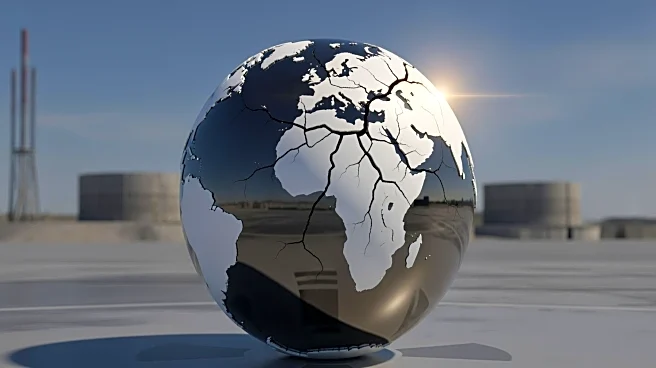What's Happening?
President Trump has announced the resumption of nuclear weapons testing by the United States, marking the first such tests in over three decades. This decision, revealed during a trip to Asia, aims to counter
perceived threats from other nations' nuclear programs. Trump stated that the U.S. military would begin testing immediately, citing the need to maintain parity with countries like Russia and China. However, experts have raised concerns about the lack of recent nuclear tests by these nations, questioning the necessity and timing of Trump's decision. The announcement has drawn criticism from international observers and experts who warn that it could undermine existing global non-proliferation frameworks.
Why It's Important?
The resumption of nuclear testing by the United States could have significant geopolitical ramifications. It risks provoking reciprocal actions from other nuclear-armed states, potentially leading to a new arms race. The move could also weaken international treaties designed to prevent nuclear proliferation, such as the Comprehensive Nuclear-Test-Ban Treaty. While the U.S. maintains a technological edge in non-explosive testing methods, the decision to resume explosive tests could erode this advantage by encouraging other nations to enhance their nuclear capabilities. This development could destabilize global security and strain diplomatic relations with key international players.
What's Next?
The international community is likely to respond with diplomatic pressure and calls for restraint. China and Russia, in particular, may issue formal protests and could consider resuming their own testing programs in response. The U.S. administration may face domestic and international scrutiny over the decision, with potential debates in Congress and among allied nations. The situation could lead to renewed discussions on arms control and non-proliferation efforts, as stakeholders seek to prevent an escalation of nuclear tensions.
Beyond the Headlines
The ethical implications of resuming nuclear testing are profound, as it challenges the global norm against such activities established over the past decades. The decision raises questions about the U.S.'s commitment to international peace and security, potentially affecting its moral standing on the world stage. Additionally, the environmental and health impacts of nuclear testing, particularly on communities near test sites, could become a contentious issue, prompting public outcry and legal challenges.










